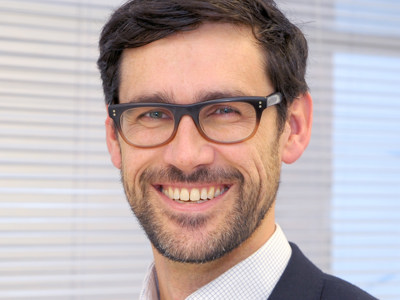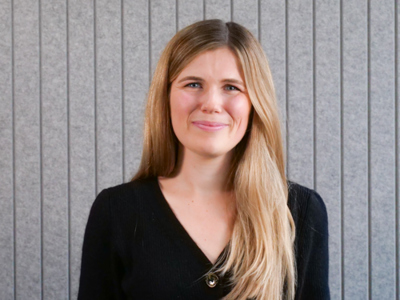Tamil asylum seekers arrive in UK after three years stranded on Diego Garcia
Tamil asylum seekers who became stranded on the British Indian Ocean Territory (BIOT) of Diego Garcia have arrived in the UK after a three-year legal fight led by a Leigh Day human rights team.
They were greeted by the lawyers whose painstaking battle to have the asylum seekers’ plight recognised was successful.
An offer from the Home Office to finally transfer the group to the UK was the culmination of three years’ work to have the group of more than 60 asylum seekers freed from Diego Garcia where it was argued they were detained unlawfully.
The group arrived on flights from Diego Garcia and Rwanda on 2 and 3 December 2024.
The group had been stranded on the island of Diego Garcia since October 2021, when they arrived after their boat got into trouble in the Indian Ocean and they were rescued by a British Navy vessel. The group had been fleeing persecution in Sri Lanka and claimed asylum on their arrival.
On Diego Garcia they were accommodated in a tented compound as a temporary measure which quickly became an intolerable situation to which the BIOT Commissioner and UK government offered no solution.
For the first six weeks they had no means of communication with the outside world.
The asylum seekers, including 16 children, lived under guard in rat infested tents in a situation that former BIOT Commissioner Paul Candler eventually described to UK government ministers as “dangerous and unsustainable”. In 2024 one of the Commissioner’s medical team on Diego Garcia described the camp as “in complete crisis”.
Leigh Day took up the asylum seekers’ case in early 2022 after human rights team partner Tessa Gregory was alerted by the Asia Pacific Refugee Rights Network to the plight of 89 Sri Lankan adults and children who had been detained for five months on a military base more than 1,500 miles from the mainland in the middle of the Indian Ocean.
The Leigh Day team fought to highlight the group’s plight and to have the UK government take action.
Their Diego Garcia casework involved applications for judicial review to address the circumstances faced by the group on the island, obtain legal aid and to hold to account the governor of BIOT.
In 2022, Leigh Day wrote to the Foreign Secretary, the Home Secretary and the BIOT Commissioner stressing that holding the group “in legal limbo on a military base with extremely limited communication to the outside world is plainly unacceptable”. The group were eventually provided with access to an iPad so that they could communicate with the outside world, particularly with their lawyers.
Subsequent correspondence pointed out that the group’s situation was worse than if they were prisoners and urgently sought action after some of the group, despairing, resorted to hunger strike in May 2022. The Government belatedly set up a process to decide the group’s asylum claims in June 2022, which lawyers argued was procedurally unfair.
In the months that followed their arrival, some of the refugees including an 18-month-old baby left Diego Garcia by boat and subsequently landed in the French territory of La Reunion following lengthy journeys on the high seas. Lawyers had grave concerns about the legality of BIOT/UK actions in facilitating dangerous onward journeys by boat. They said BIOT was bound by obligations in Safety of Life at Sea (SOLAS).
Some of the group were transferred to Rwanda in March 2023 for emergency medical attention after attempts to take their own life. A number of them remained in Rwanda until their transfer to the UK this week.
In May 2023 the BIOT Court ruled that the Government had, since their arrival on October 2021, unlawfully denied the group access to legal aid support.
In September 2023 the Government withdrew a decision to forcibly return members of the group to Sri Lanka days before they were due to defend a process beset by procedural unfairness in the BIOT Supreme Court.
In April 2024 the legal teams were able to convince the courts that the UK Children Act applied in BIOT, meaning the Commissioner had to provide support to safeguard the children on the island from the risk of significant harm.
In June 2024 BIOT Commissioner Paul Candler wrote to Foreign Secretary David Cameron and then wrote to Foreign Secretary David Lammy in July urging action to remove the asylum seekers. No action was taken, and the Commissioner resigned his post.
Eventually, in September 2024 a judicial review hearing was held on Diego Garcia, arguing that the group was being detained unlawfully. The hearing had initially been due to take place in July 2024, but the Court was blocked from arriving on Diego Garcia by the US Government.
Before judgment was given and prior to a UK judicial review that was due to be heard in December, government lawyers confirmed in November 2024 that the Government intended to transfer all of the group to the UK.
As the group from Diego Garcia landed at Gatwick, Leigh Day partner Tessa Gregory said:
"We are absolutely delighted that after three years of legal wrangling our clients have been brought to the UK. This vulnerable group which includes 16 children have spent 38 months detained in the most squalid of conditions on Crown land. It has cost the British taxpayer tens of millions of pounds to keep them under guard in rat infested tents on Diego Garcia. The only sensible solution to end the humanitarian crisis was to bring them here. We hope our clients will now be able to seek safe haven and begin to rebuild their lives."
Leigh Day solicitor Tom Short added:
“Quite plainly something has gone very seriously wrong for the BIOT Commissioner to have detained our clients, including young children, for more than 1100 days in execrable conditions at very considerable public expense. While our immediate concern is the safe transition of our clients into the UK, it is only right that in due course this further shameful episode in British governance of the Chagos islands be fully scrutinised through a public inquiry.”
Tessa Gregory worked with solicitors Tom Short, Claire Powell and Josh Munt. Judicial review proceedings were brought by Leigh Day alongside teams at Duncan Lewis and Wilson’s.




